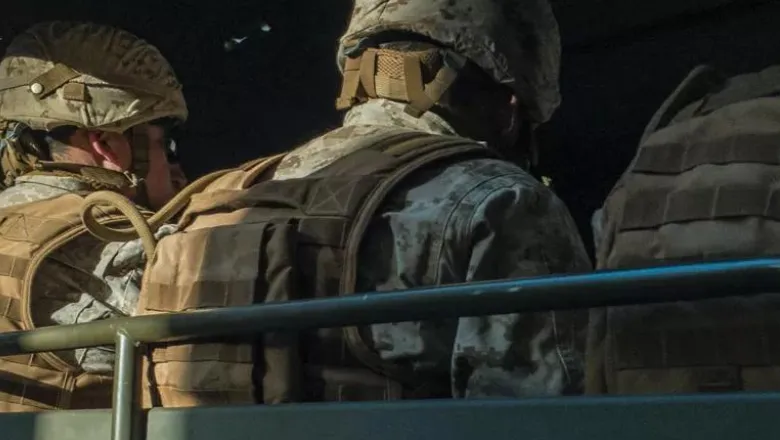“To serve in the military is, for many personnel, an important aspect of their identity. Combat injury and medical discharge can represent an unexpected end to that identity and can have a lasting impact on a person. It’s vital therefore that personnel who face medical discharge are provided with the necessary support to ease that transition wherever and whenever possible.”
Professor Nicola Fear CBE, Director of KCMHR and the report’s senior author
21 August 2025
New report explores the role of combat injuries in medical discharge from the UK Armed Forces
A new report from the King’s Centre for Military Health Research (KCMHR) has explored the outcomes and experiences of UK Armed Forces personnel who were medically discharged having sustained serious injuries when deployed to Afghanistan.

The report, funded by Forces in Mind Trust and the ADVANCE study charity, highlights the difficulties that many medically discharged personnel face and puts forward several recommendations that the authors hope will ease the transition process.
Researchers surveyed 435 ex-service personnel who’d been seriously injured in combat while on deployment in Afghanistan and undertook a series of 28 in-depth interviews to better understand the experience of medical discharge and post-service life.
Participants reported a range of issues, including dissatisfaction about the perceived lack of collaboration with the military with regards to their leaving, a lack of tailored career advice that meets the needs of those who had sustained a combat injury, and frustration over the lack of communication between medical care pre- and post-transition.
The report offers ten recommendations designed to provide solutions to the challenges faced by former personnel. These include ensuring that those in the chain of command work alongside Service leavers to increase their sense of agency at the end of their contract, providing robust financial advice to help manage compensation payments, and providing tailored career advice that takes into account a person’s physical limitations following injury.
Dr Howard Burdett, a Research Fellow at KCMHR and the study’s joint first author said, “Despite being eligible for the highest levels of support from transition services, personnel who are medically discharged face lower rates of post-Service employment compared to those who left via other methods of discharge. This report seeks to better understand the unique challenges of those who leave following serious combat injury, and provide evidence-based recommendations to improve their transition outcomes.”
"While services for veterans have expanded and improved since this data was collected, this important research highlights the challenges that some personnel who are medically discharged can face."
Minister for Veterans and Peoples, Al Carns MP
Anna Verey, a Research Associate at KCMHR and the study’s joint first author said, “After sustaining serious injuries, many personnel needed to ‘reinvent’ their professional futures swiftly; providing injured personnel with career support and professional development opportunities early on in their physical rehabilitation should be encouraged and endorsed.”
Minister for Veterans and Peoples, Al Carns MP, said, "We’re committed to ensuring medically discharged veterans receive comprehensive support. This includes through providing dedicated career guidance, tailored to the individual and guaranteed employment support through our Career Transition Partnership.
“This year, the government has invested more than £25 million in Op COURAGE, the specialist veterans' mental health service, and Op RESTORE, for physical health needs. This is alongside the Defence Transition Service, which provides up to two years of targeted transition support.
“We will carefully consider these recommendations to ensure our services continue to meet the evolving needs of our wounded veterans as we work towards renewing the contract with those who serve."
Professor Lisa Scullion FAcSS, Lead Professor for Social Sciences at University of Salford said, “The support provided during medical discharge is crucial, not only for immediate wellbeing but also to ensure that the final chapter of service does not overshadow what were otherwise meaningful and rewarding careers.”
Michelle Alston, Chief Executive of Forces in Mind Trust said, “Whilst most ex-Service personnel transition from the Armed Forces successfully, being medically discharged can make transition sudden and especially disruptive. Understanding and adapting support for those injured in Service can make transition successful for those who face some of the steepest challenges.”
Medical discharge from the UK Armed Forces and the role of combat injury: a short report from the ADVANCE-INVEST study (Burdett, Fear et al) was published by King’s College London.
For more information, please contact Patrick O’Brien (Media Manager)



